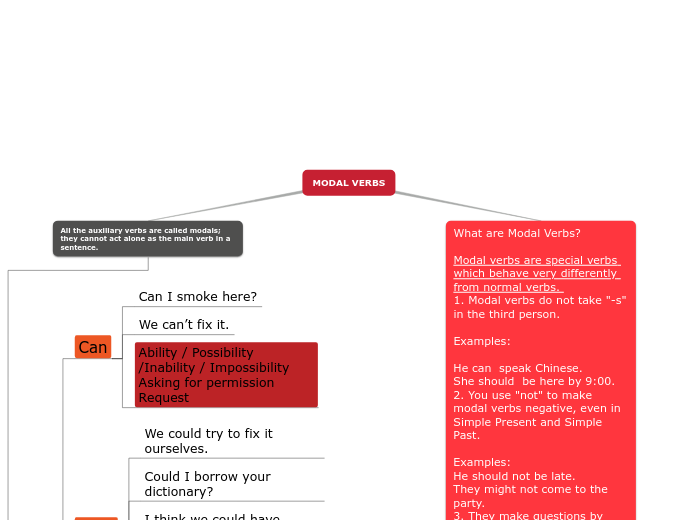
IN SHORT:
Can
Can I smoke here?
We can’t fix it.
Ability / Possibility /Inability / Impossibility Asking for permission Request
Could
We could try to fix it ourselves.
Could I borrow your dictionary?
I think we could have another Gulf War.
Asking for permission/Request /Suggestion/ Future possibility/ Ability in the past
May
May I have another cup of coffee?
China may become a major economic power
Asking for permission Future possibility -
Might
We'd better phone tomorrow, they might be eating their dinner now. -
They might give us a 10% discount.
Present possibility/ Future possibility
Must
We must say good-bye now.
They mustn’t disrupt the work more than necessary.
Necessity / Obligation/ Prohibition
Should
We should sort out this problem at once.
I think we should check everything again.
Saying what’s right or correct /Recommending action / Uncertain prediction
They convey different meanings:
Probability:
First, they can be used when we want to say how sure we are that something happened / is happening / will happen. We often call these 'modals of deduction' or 'speculation' or 'certainty' or 'probability'.
Ability:
We use 'can' and 'could' to talk about a skill or ability.
Obligation and Advice:
We can use verbs such as 'must' or 'should' to say when something is necessary or unnecessary, or to give advice.
Permission:
we can use verbs such as 'can', 'could' and 'may' to ask for and give permission. We also use modal verbs to say something is not allowed.
Past modals:
The past modals 'could have + past participle', 'should have + past participle' and 'would have + past participle' can be confusing.